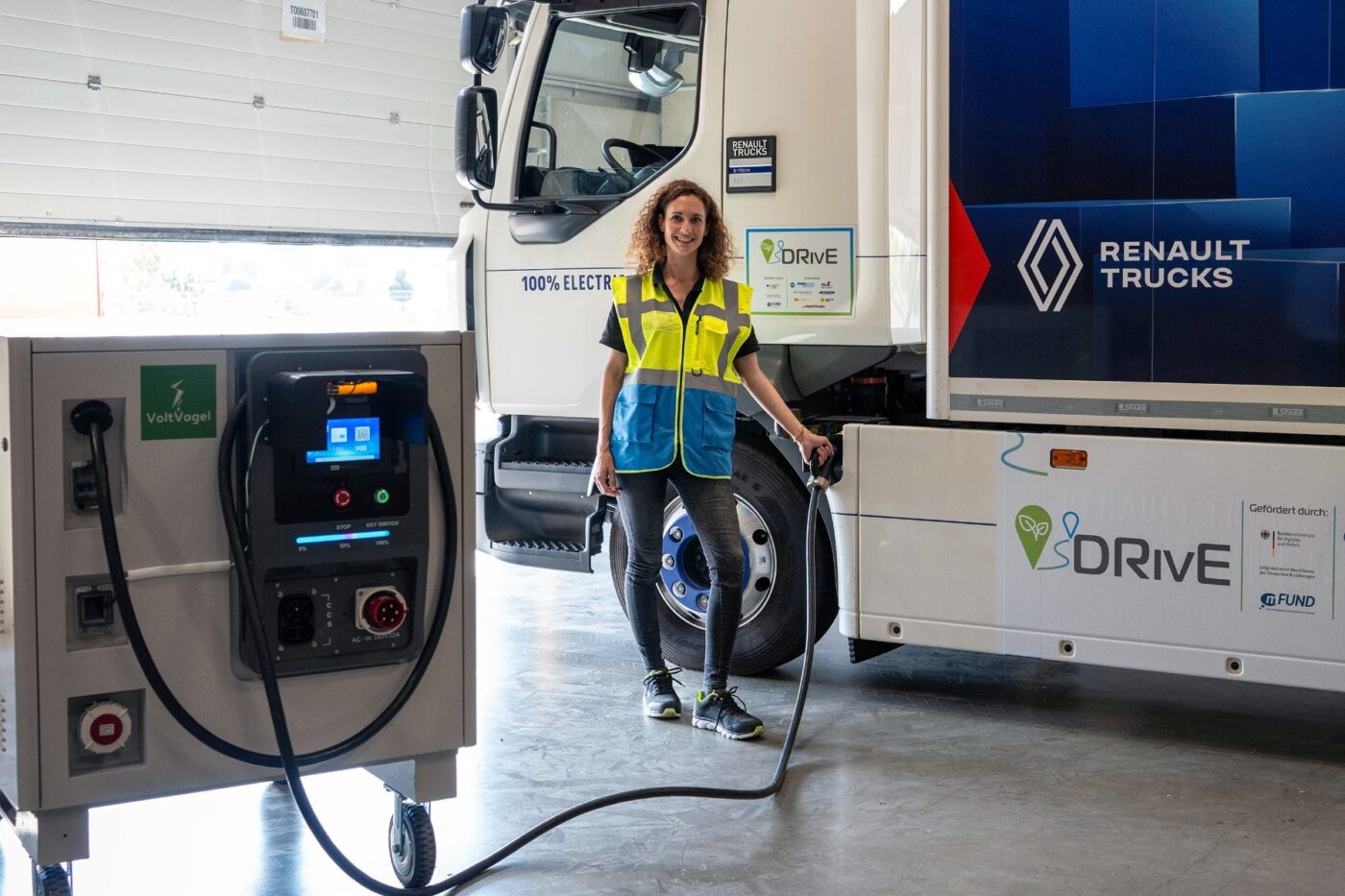DRivE project completed in Germany
The Chair of Production Engineering of E-Mobility Components (PEM) at RWTH Aachen University has successfully completed the DRivE project funded by the German Federal Ministry of Digital and Transport together with partners from research and the transport and logistics industry.
The aim of the project was to develop a data-based route planning system for non-diesel-powered trucks to facilitate the switch to low-emission drive solutions in the future. The result is a web-based routing algorithm that links data on the charging and refuelling infrastructure with data on vehicle conditions and route characteristics in order to calculate optimal routes for trucks with alternative drive systems.
The aim of the project was to develop a data-based route planning system for non-diesel-powered trucks to facilitate the switch to low-emission drive solutions in the future. In other words, intelligent route planning with charging stops for battery-powered trucks or refuelling stops in the case of hydrogen fuel cells should offer companies from the transport and logistics sector planning security for their routes and thus counteract “range anxiety,” as the participating RWTH Aachen University puts it in the press release.
The route planning system is also transferable to alternative drives with liquefied natural gas (LNG), which is why the name ‘DRivE’ stands for “Data-based route planning in road freight transport with different energy supply technologies.” Although charging route planning is essentially familiar from modern electric cars, a number of criteria need to be added for electric trucks: For example, charging points with too little power are not practical for electric truck batteries, which tend to be larger, and the charging point must also be accessible by an electric truck in the first place. And even then, a distinction must be made as to whether it is an electric tractor unit (which can possibly be unhitched for charging) or the rigid chassis of an articulated truck with a long motor vehicle.
“Our result is a web-based routing algorithm that links data on the charging and refueling infrastructure with vehicle conditions and route characteristics in order to calculate optimal routes for trucks with alternative drive systems,” explained RWTH Professor Achim Kampker, who heads the ‘Production Engineering of E-Mobility Components’ (PEM) chair involved in the project. “The network of filling stations for hydrogen and liquefied natural gas is still very limited throughout Germany, and access to e-charging stations is often difficult to plan.”
The ‘DRivE’ consortium had already drawn an interim conclusion on the two-month test phase in the summer at the end of August. This and the subsequent evaluation revealed two key challenges in real-life operation, as the chair writes. The first is access to real-time vehicle data such as battery charge status and energy consumption, which are of course essential for the software. Secondly, the algorithm developed by the ‘DRivE’ consortium must be integrated into the existing transport management systems of the haulage companies – a one-off pilot project is not enough.
“Such technical obstacles can be overcome, allowing digital solutions such as the ‘DRivE’ algorithm to reach market maturity and bring about a profound transformation of road freight transport,” says Kampker. The general functionality of the route planning system, which was developed by the Aachen-based start-up company and project initiator Mansio, was demonstrated during the pilot phase.
In addition to PEM, Hammer Road Cargo and Park Your Truck GmbH, Maintrans Internationale Spedition, Mansio GmbH, ZeKju GmbH and FIR e.V. at RWTH Aachen University are also involved in ‘DRivE’. The project was funded by the German Federal Ministry of Digital and Transport (BMDV) with a total of around 2.1 million euros.





0 Comments